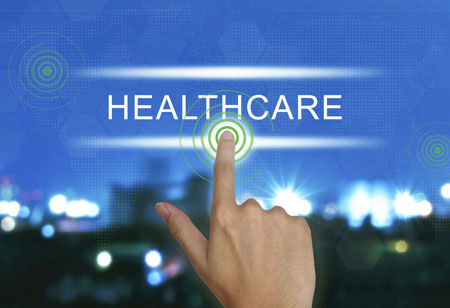THANK YOU FOR SUBSCRIBING
Leveraging the Power of Artificial Intelligence to Transform Healthcare
AI, Machine Learning, Healthcare, Transform

By
Apac CIOOutlook | Thursday, January 01, 1970
Stay ahead of the industry with exclusive feature stories on the top companies, expert insights and the latest news delivered straight to your inbox. Subscribe today.
The penetration of advanced technologies such as Artificial Intelligence (AI) and Machine Learning (ML) is creating a buzz in the healthcare community. The usage of these disruptive technologies in healthcare promises a major transformation in terms of bringing a greater level of optimization and efficiency, reducing malpractices, ensuring better robot-assisted surgical precision, and improving the diagnostic systems to help detect serious diseases earlier. Having realized this, innovators in the technology space are looking for ways to integrate the power of AI into healthcare systems.
Further, deep learning is also being implemented to tackle challenges around imaging diagnostics such as radiology. As the nature of the data extracted from imaging diagnostics is mostly unstructured, aggregating such data to gain meaningful insights remains a major challenge. However, deep learning has immense potential to assist doctors to deliver better healthcare while eliminating the repetitive work. In addition, AI-enabled computing will help the healthcare service providers in performing non-core operations, such as managing patient screening, identifying population health trends, among others.
The objective of machine learning is to automate the health monitoring and diagnostics and make the patients, rather consumers, less dependent on medical staff, thereby saving them from incurring additional cost, particularly for multiple health check-ups. As an example, Apple Smart Watch’s heart rate monitoring technology collects data and alerts an individual—suffering from Atrial Fibrillation—in case of irregular heartbeat.
With the capabilities of AI, ML, and deep learning, the health professionals can tailor the medicinal composition based on genetics or DNA and medical history of the patient. Furthermore, the Electronic Health Records (EHR) will be automated, eliminating the administrative work of the staff involved in creating and maintaining EHR—and instead, they will be able to focus on their core jobs.
Above all, the industry as a whole is likely to integrate the power of AI and deep learning to solve most of the medical challenges, such as enhancing precision in critical surgeries. Other benefits of this integration will allow for a more doctor-patient time during the consultation and lessen patient visits to healthcare centers with the help of AI systems and Robotics.





